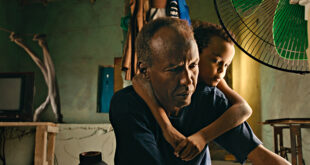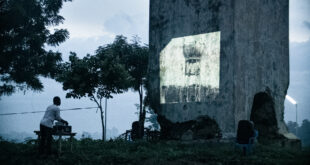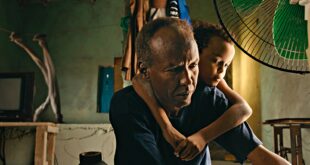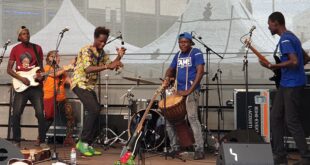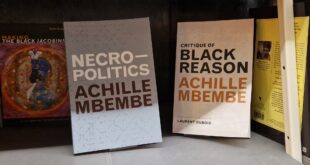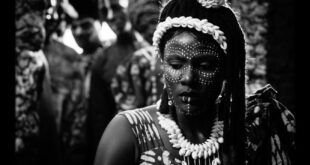At the just-concluded Tarifa-Tangiers African Film Festival (Festival cine africano de Tarifa or FCAT), international critics have voted for the best African films of all time.
FCAT, which takes place in the Spanish town Tarifa and the Moroccan city of Tangiers, celebrates its 15th year of promoting and subtitling cinema productions from Africa into Spanish from 26 April to 5 May.
To mark the anniversary, 10 critics from different countries have voted for the best films in the history of Africa. This is the first classification based on expert opinions of the African cinema which has gradually gained a foothold in Spain in recent years.
Almost all of the participants concurred in placing feature film Touki Bouki (1973) by Senegalese director Djibril Diop Mambéty, at the top of the list, labelling it the best African film of all time. In the words of French critic Olivier Barlet, Mambéty’s film depicts “the rupture of a society whose members are torn between their home country and the world beyond”.
The film marked a turning point in African cinema, featuring “an avant-garde aesthetic”. Touki Bouki provided an inexhaustible source of inspiration for directors in the 1970s, and continues to be a reference for new generations of filmmakers.
Meanwhile, the critics voted Yeelen (Brightness) by Malian director Souleymane Cissé into second place. As Italian critic and professor at Rome 3 University Leonardo de Franceschi notes, the film “describes the initiatory journey of a young man whose destiny is to confront his father for power”.
Winning the Critics’ Prize at the Cannes Festival in 1987, Cissé “constructs a cryptic, visually dazzling tale, which depicts the death of the divine and the advent of a new Africa, born of fusion”.
The third most highly voted film by the critics is La Noire de… by Ousmane Sembène, considered the father of sub-Saharan African cinema. As Senegalese expert Aboubacar Demba Cissokho notes, this work is “the first feature film made by a director from black Africa which tackles, among other themes, the issue of racism”.
In turn, De Franceschi emphasises that the film “continues to be a highly modern act of accusation against European neo-colonialism, the exploitative dynamics which continue to mark North-South relations and the alienation which decertify interpersonal relationships”.
In fourth place is Ethiopian film Teza by Haile Gerima. All of the films following this in the classification received the same number of votes and are listed below in alphabetical order:
- Touki Bouki by Djibril Diop Mambéty (Senegal, 1973)
- Yeelen by Souleymane Cissé (Mali, 1987)
- La noire de… by Ousmane Sembène (Senegal, 1966)
- Teza by Haile Gerima (Ehtiopia, 2008)
- Daratt [Dry Season] by Mahamat Saleh Haroun (Chad, 2006)
- Hyènes by Djibril Diop Mambéty (Senegal, 1992)
- La Vie sur terre by Abderrahmane Sissako (Mauritania, 1998)
- Sarraounia by Med Hondo (Mauritania, 1986)
- Soleil Ô by Med Hondo (Mauritania, 1967)
- Xala by Ousmane Sembène (Senegal, 1975)
 THE AFRICAN COURIER. Reporting Africa and its Diaspora! The African Courier is an international magazine published in Germany to report on Africa and the Diaspora African experience. The first issue of the bimonthly magazine appeared on the newsstands on 15 February 1998. The African Courier is a communication forum for European-African political, economic and cultural exchanges, and a voice for Africa in Europe.
THE AFRICAN COURIER. Reporting Africa and its Diaspora! The African Courier is an international magazine published in Germany to report on Africa and the Diaspora African experience. The first issue of the bimonthly magazine appeared on the newsstands on 15 February 1998. The African Courier is a communication forum for European-African political, economic and cultural exchanges, and a voice for Africa in Europe.














